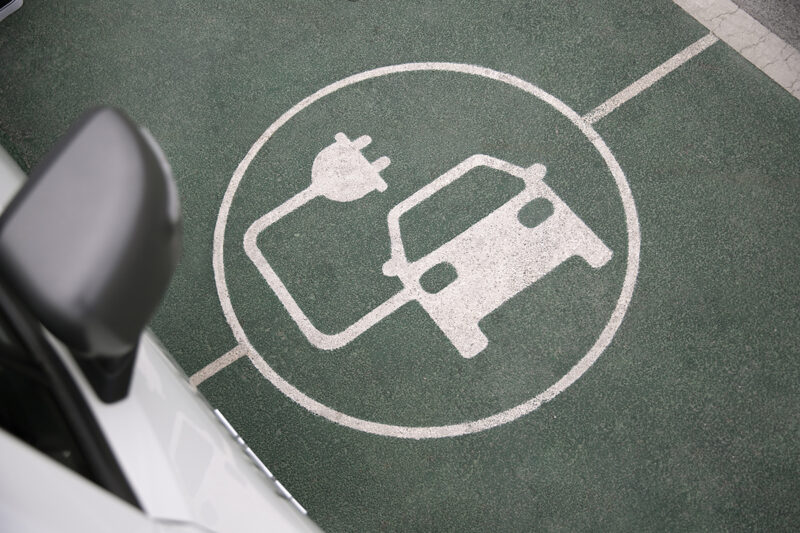The Future of Sustainable Transportation Exploring Electric Vehicles and Infrastructure
- The rise of electric vehicles (EVs) as an alternative to traditional oil vehicles is driven by environmental concerns, reduced operating costs, and advancements in technology. EVs offer a cleaner and more sustainable transportation solution, contributing to improved air quality and a healthier future.
- Government initiatives, collaborations with car manufacturers, and significant investments in EV infrastructure are paving the way for the widespread adoption of EVs. As EVs become more affordable, reliable, and readily available, they are set to transform the transportation industry, benefiting individuals, businesses, and society as a whole.

The Rise of Electric Vehicles and the Development of Charging Infrastructures
With the world witnessing rapid changes in natural resources, there is a growing awareness of the need to secure a sustainable future. Traditional oil vehicles are becoming increasingly limited due to the dangers of climate change and the depletion of fossil fuels. As a result, electric vehicles (EVs) have gained popularity as a cleaner and more environmentally friendly alternative. EVs offer several advantages, including lower operating costs, reduced maintenance requirements, and zero emissions when powered by electricity instead of gasoline or diesel. The rise of EVs has also created a demand for charging infrastructures, leading to job opportunities and further supporting the widespread adoption of EVs.
According to research, transportation is the largest contributor to energy-related CO₂ emissions, with road vehicles accounting for a significant portion. In response to this environmental challenge, many car manufacturers are recognizing the shift towards EVs and collaborating to create sustainable components such as solid-state batteries. These advanced batteries are more efficient, safe, and longer-lasting than traditional lithium-ion batteries. As more people embrace electric cars, further developments in the industry, such as affordability improvements, increased availability of charging stations, and exciting design options, are expected.
The environmental benefits of transitioning from oil to electricity are significant. Concerns about air pollution, intensified by the COVID-19 pandemic, have prompted immediate action to reduce gas emissions and mitigate the deterioration of the environment. Compared to driving alone, public transportation reduces CO2 emissions by 45%, contributing to decreased atmospheric pollutants and improved air quality. Embracing sustainable transportation options like EVs not only helps combat respiratory ailments but also encourages physical activity by providing a more trustworthy air quality for outdoor activities.

EVs have experienced notable technological advancements in recent years. Companies like Tesla and Polestar have been at the forefront of this transformation, constantly refining vehicle systems and gears through years of trial and error. For instance, Tesla’s Supercharger can now provide up to 170 miles of range in just 30 minutes, equivalent to approximately 15% of the energy consumed by a traditional oil car for a similar distance. Manufacturers are continuously upgrading EV components, from steering wheels to suspensions and motors, to minimize the use of natural resources and reduce emissions. Each evolution of an EV pushes the boundaries beyond traditional oil vehicle designs.
The promotion of EVs extends beyond consumer support and corporate partnerships; governments and executives are taking proactive measures to address long-standing challenges related to climate change and public health. Initiatives like the Clean Vehicles Rebate Project (CVRP) and the Electric Vehicle Initiatives (EVI) have been implemented to integrate EVs into people’s everyday lives. For example, President Biden signed the Inflation Reduction Act of 2022, which allocates almost $370 billion in federal funding for climate and energy investments, including the most substantial investments in vehicle electrification in US history. The projected increase in EV sales to 30% by 2025 suggests that nearly one-fourth of the population worldwide will rely on EVs for daily transportation, paving the way for technological advancements and similar levels of satisfaction seen in traditional oil vehicles.
In conclusion, EVs are on track to redefine the future of transportation, offering affordability, reliability, and widespread availability. They present a healthier and cleaner alternative that aligns with the expectations of individuals and communities. The adoption of EVs is not only vital in terms of market growth but also supports policies that benefit individuals, businesses, and society as a whole. As years go by, the continual expansion of EV targets and the evolving needs of consumers will drive further advancements, solidifying EVs as the vehicles of the future and ensuring a sustainable world.
Sustainable Futures Collab Project, Hyundai Motor Group & RISD









